News
-
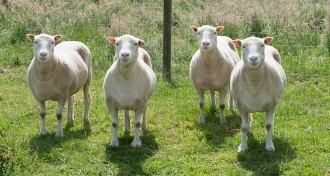 Genetics
GeneticsDolly the Sheep’s cloned sisters aging gracefully
Cloning doesn’t cause premature aging in sheep.
-
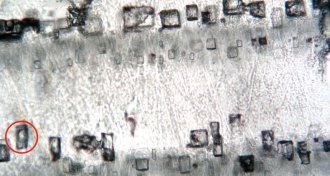 Earth
EarthAncient air bubbles could revise history of Earth’s oxygen
Pockets of ancient air trapped in rock salt for around 815 million years suggest that oxygen was abundant well before the first animals appear in the fossil record.
-
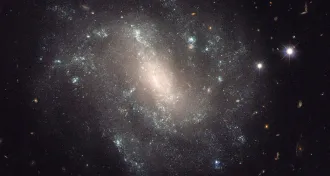 Cosmology
CosmologyDebate accelerates on universe’s expansion speed
A puzzling mismatch is plaguing two methods for measuring how fast the universe is expanding.
-
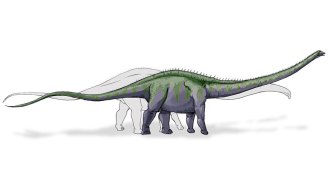 Earth
EarthHow dinosaurs hopped across an ocean
Land bridges may have once allowed dinosaurs and other animals to travel between North America and Europe around 150 million years ago, a researcher proposes.
-
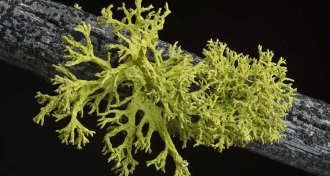 Life
LifeYeasts hide in many lichen partnerships
Yeasts newly discovered in common lichens challenge more than a century of thinking about what defines the lichen symbiosis.
By Susan Milius -
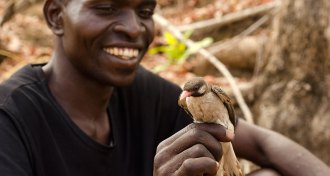 Anthropology
AnthropologyHumans, birds communicate to collaborate
Bird species takes hunter-gatherers to honeybees’ nests when called on.
By Bruce Bower -
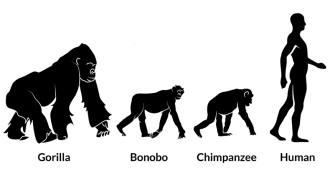 Genetics
GeneticsEvolution of gut bacteria tracks splits in primate species
Primates and microbes have been splitting in sync for at least 10 million years.
-
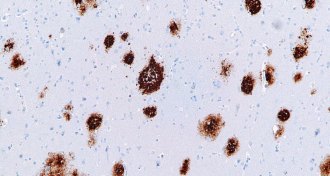 Neuroscience
NeuroscienceAntibiotics might fight Alzheimer’s plaques
A new study found that antibiotics hit Alzheimer’s plaques in the brains of mice.
-
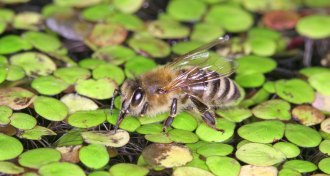 Animals
AnimalsTo douse hot hives, honeybee colonies launch water squadrons
The whole superorganism of a honeybee colony has sophisticated ways of cooling down.
By Susan Milius -
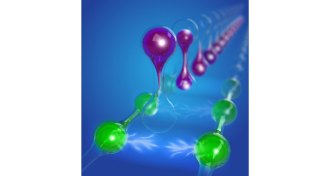 Physics
PhysicsElectrons have potential for mutual attraction
Electrons usually repel each other, but new research shows pairs of electrons can be attracted due to their repulsion from other electrons.
-
 Health & Medicine
Health & MedicineAnesthesia steals consciousness in stages
Brains regions that are synchronized when awake stop communicating as monkeys drift off.
-
 Physics
PhysicsScientists throw a curve at knuckleball explanation
Wildly swerving pitches may be the result of a phenomenon known as a “drag crisis”